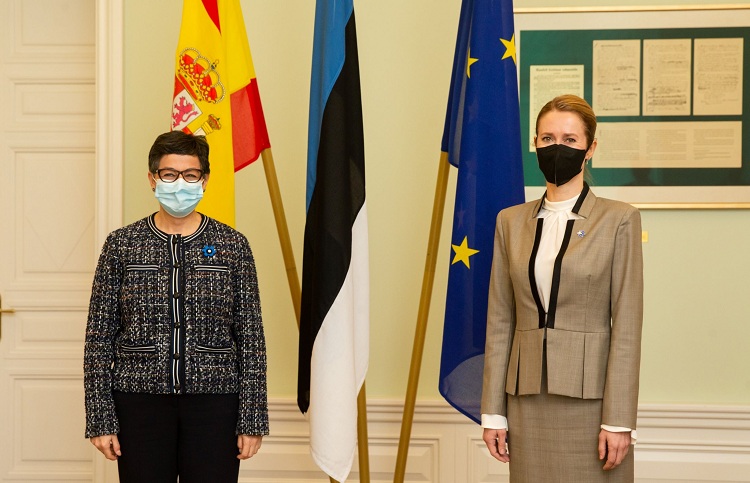Eduardo González
Germany’s announcement that it could buy the Russian vaccine Sputnik V against COVID-19 on its own will not alter the Spanish government’s stance in favor of the European strategy based on the centralized acquisition of drugs that have the authorization of the European Medicines Agency (EMA), according to diplomatic sources.
The German Minister of Health, the conservative Jens Spahn, has announced his intention to initiate bilateral talks with Russia with a view to the possible purchase of Sputnik V in the event that this vaccine receives EMA authorization for its application in Europe. Spahn also assured that “Russia will have to provide data” on the efficacy and safety of the vaccine.
The Government of Pedro Sánchez has so far insisted on its firm support to the process led by the Commission, as recalled last Thursday in Riga by the Minister of Foreign Affairs, Arancha Gonzalez Laya, who assured that “only vaccines approved by the European Medicines Agency can be inoculated in Spain” and described as an “occurrence” the intention of the Community of Madrid to try to acquire the Russian Sputnik V vaccine.
To date, Brussels has only approved the purchase of the vaccines AstraZeneca, Pfizer/BioNTEch, Moderna and Janssen. However, the Commission itself acknowledged on Thursday that Member States are free to purchase other vaccines.
In this regard, the same diplomatic sources recalled that the European process requires, from the outset, that purchases be limited to vaccines authorized by the EMA and warned that, for the time being, the manufacturers of Sputnik V have not requested authorization from this European body. Therefore, if the Russian pharmaceutical company decides to submit to the Agency’s assessment and the latter finally authorizes the vaccine, the next decision will be taken by the Commission. Until that happens, they warned, it would be “hasty to make an assessment of what Spain would do”.






